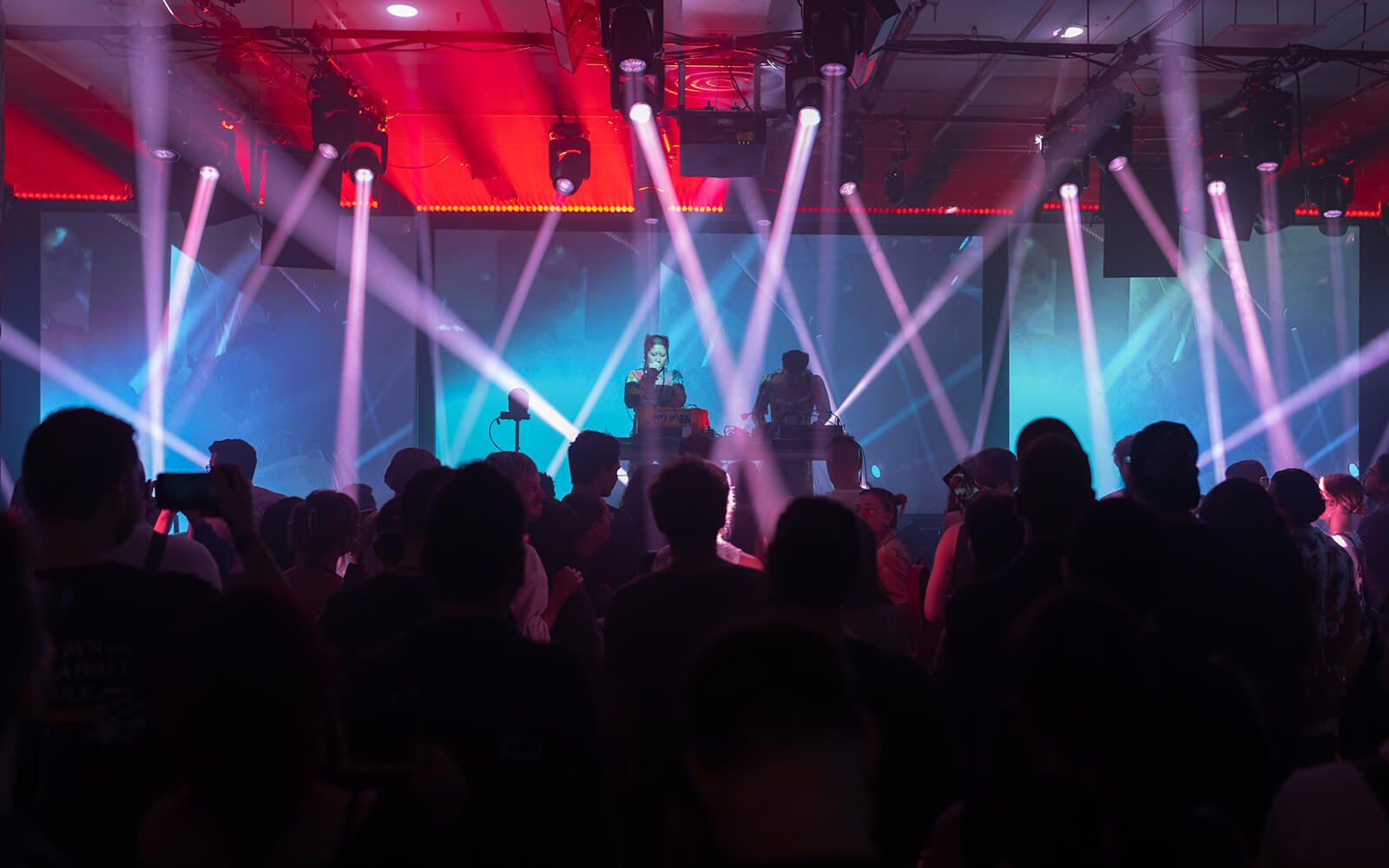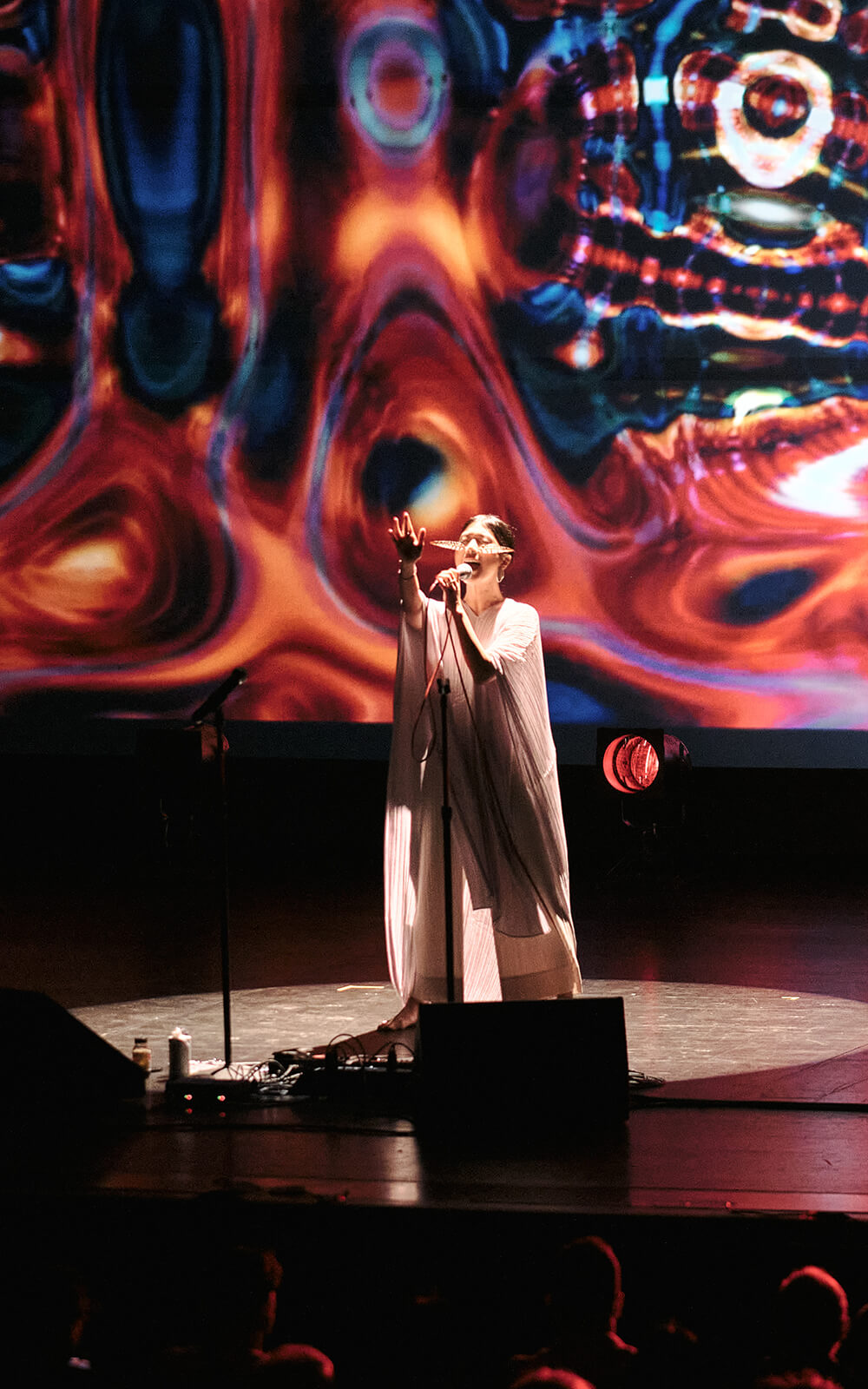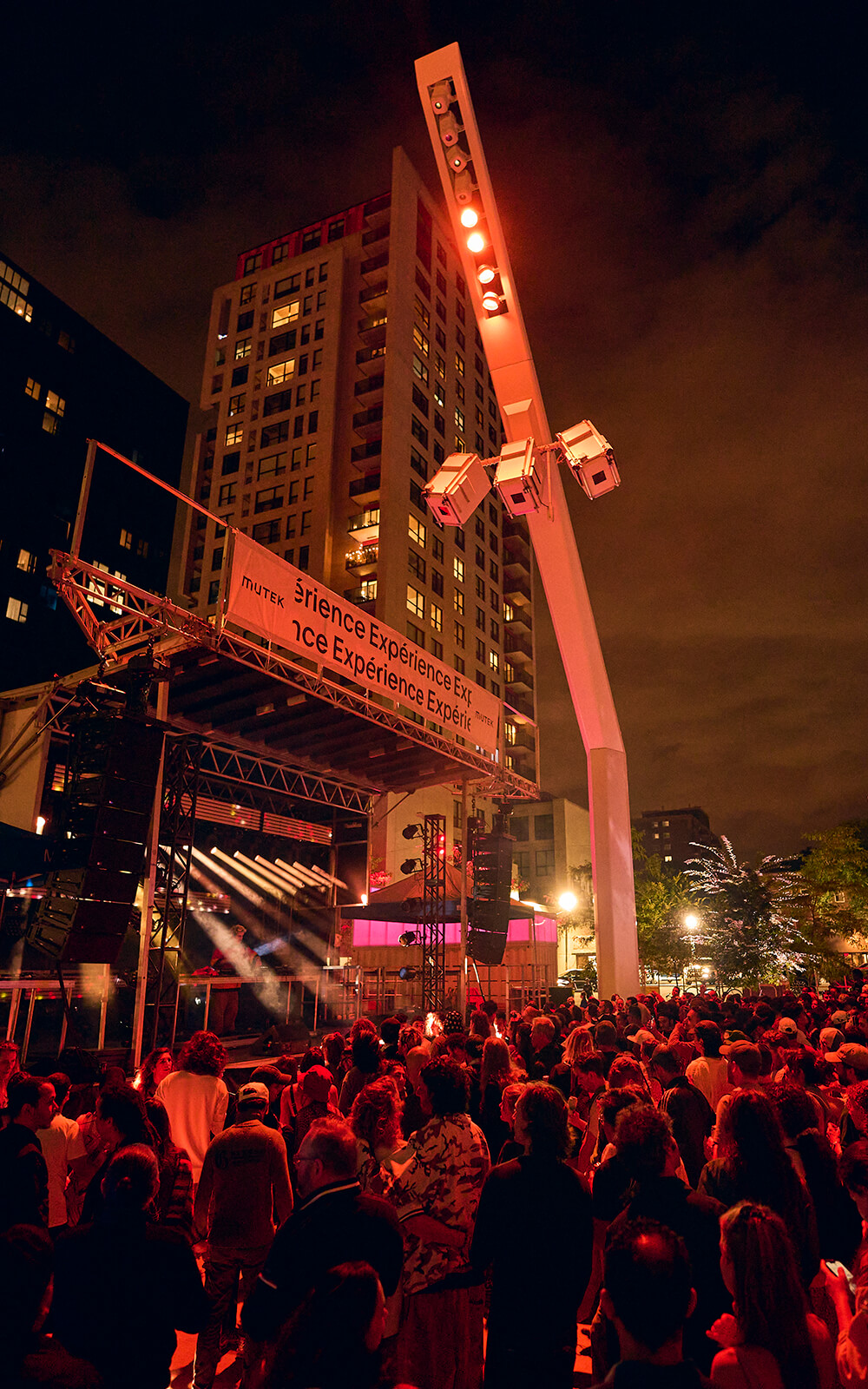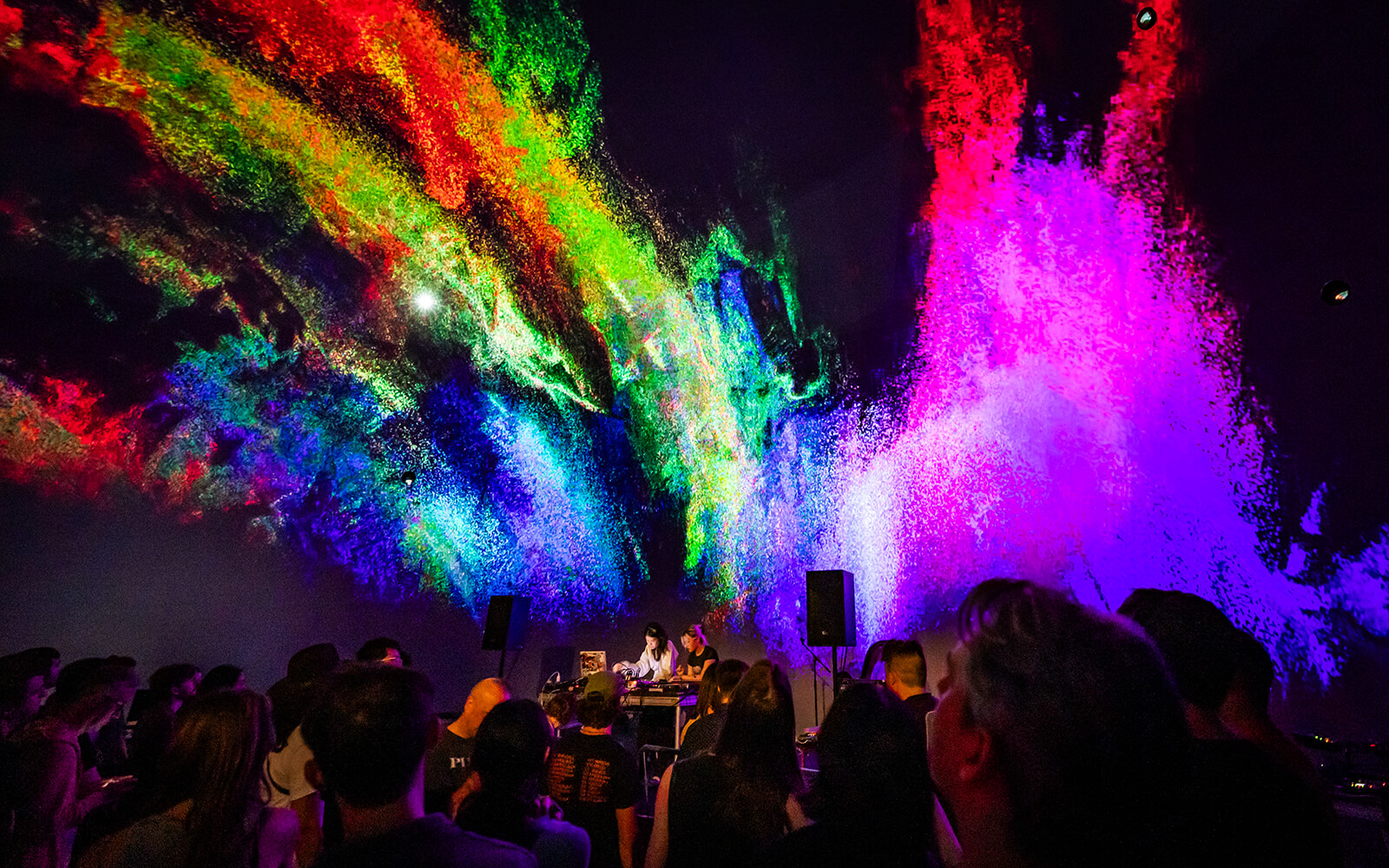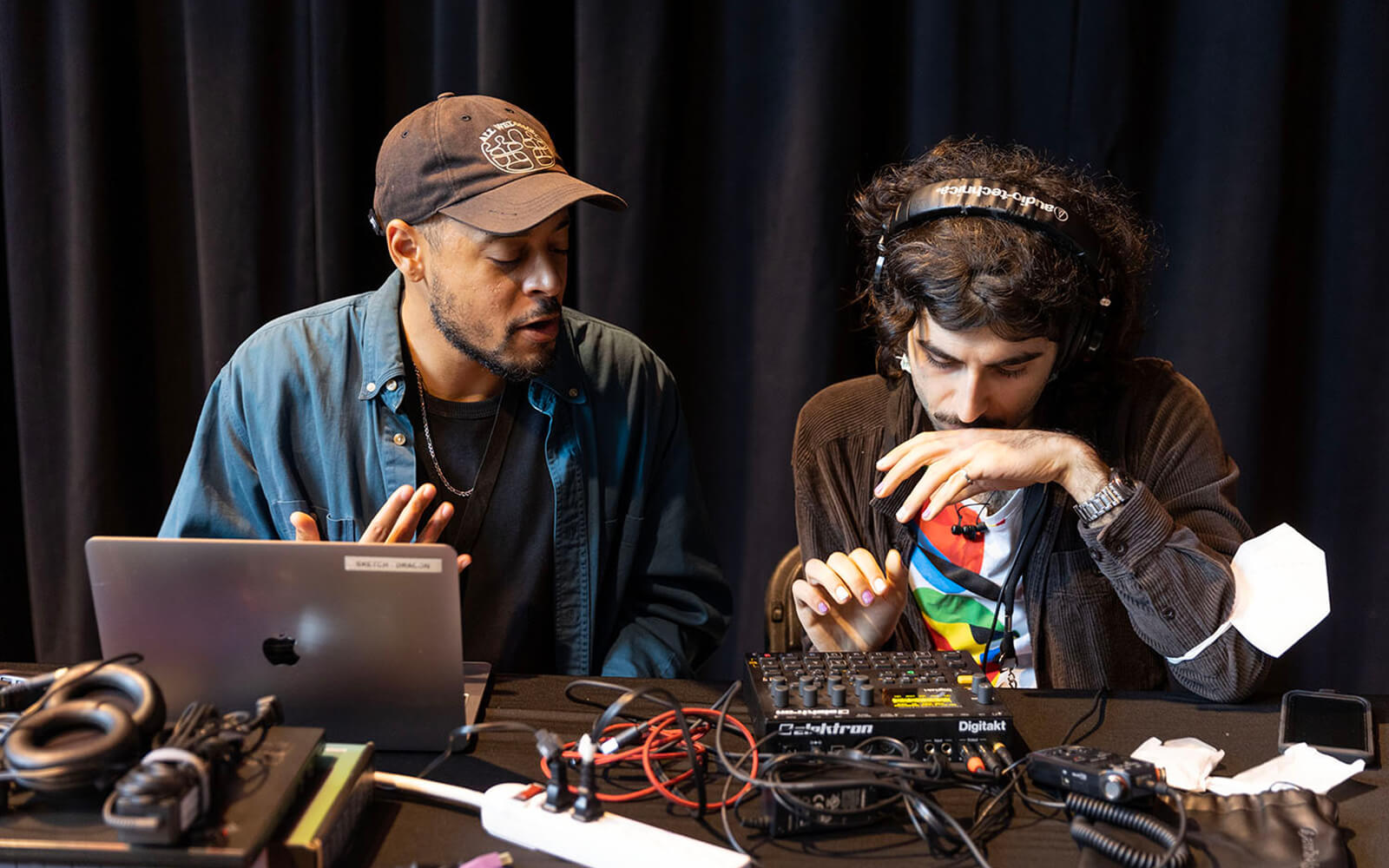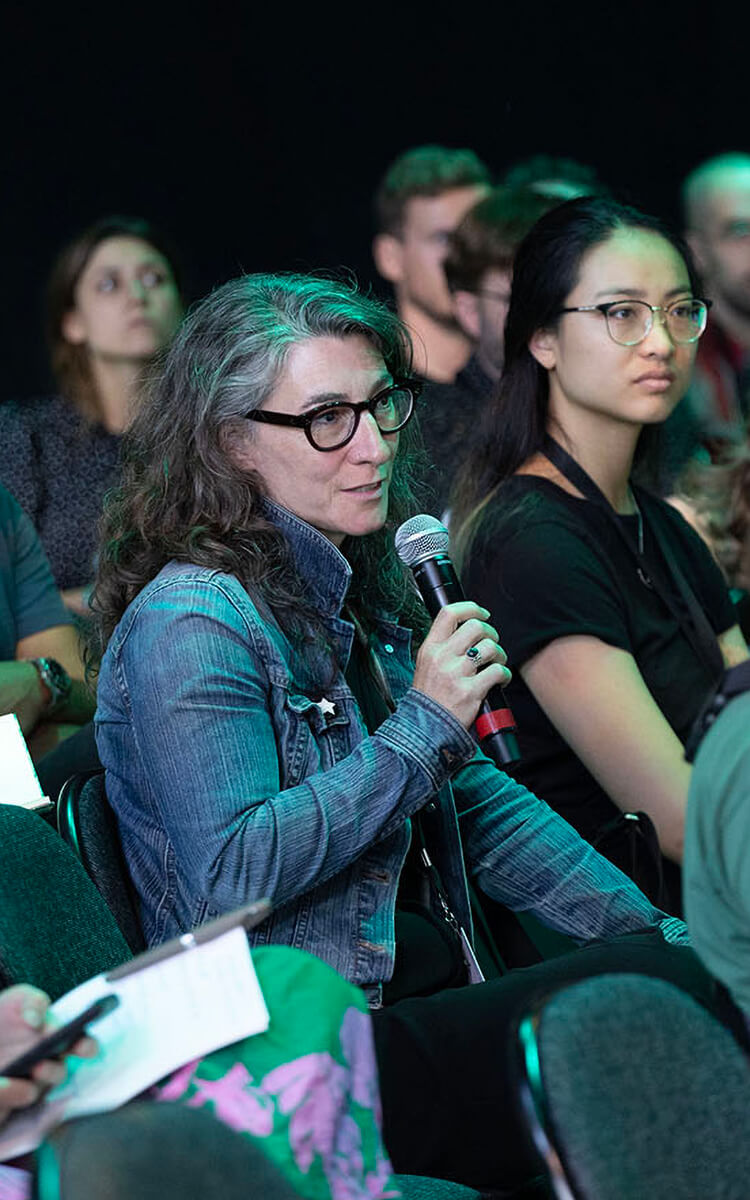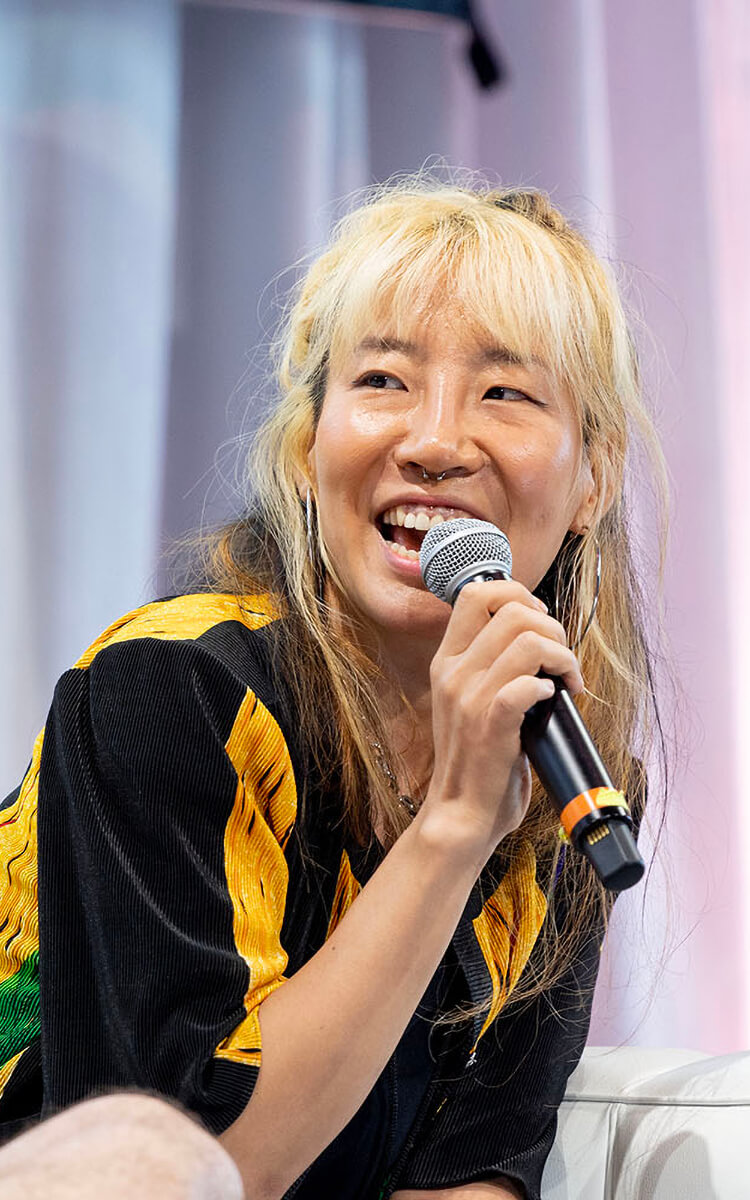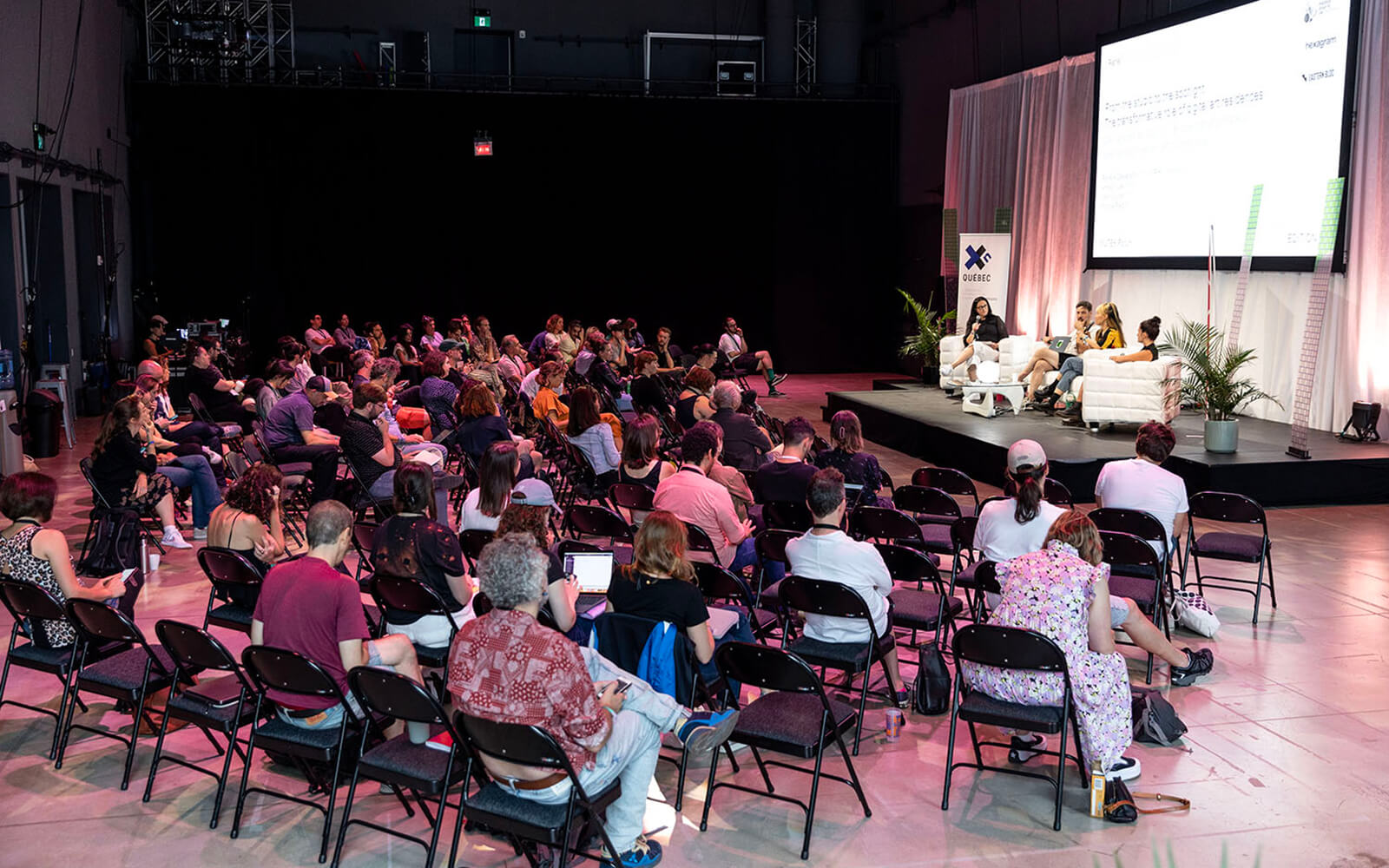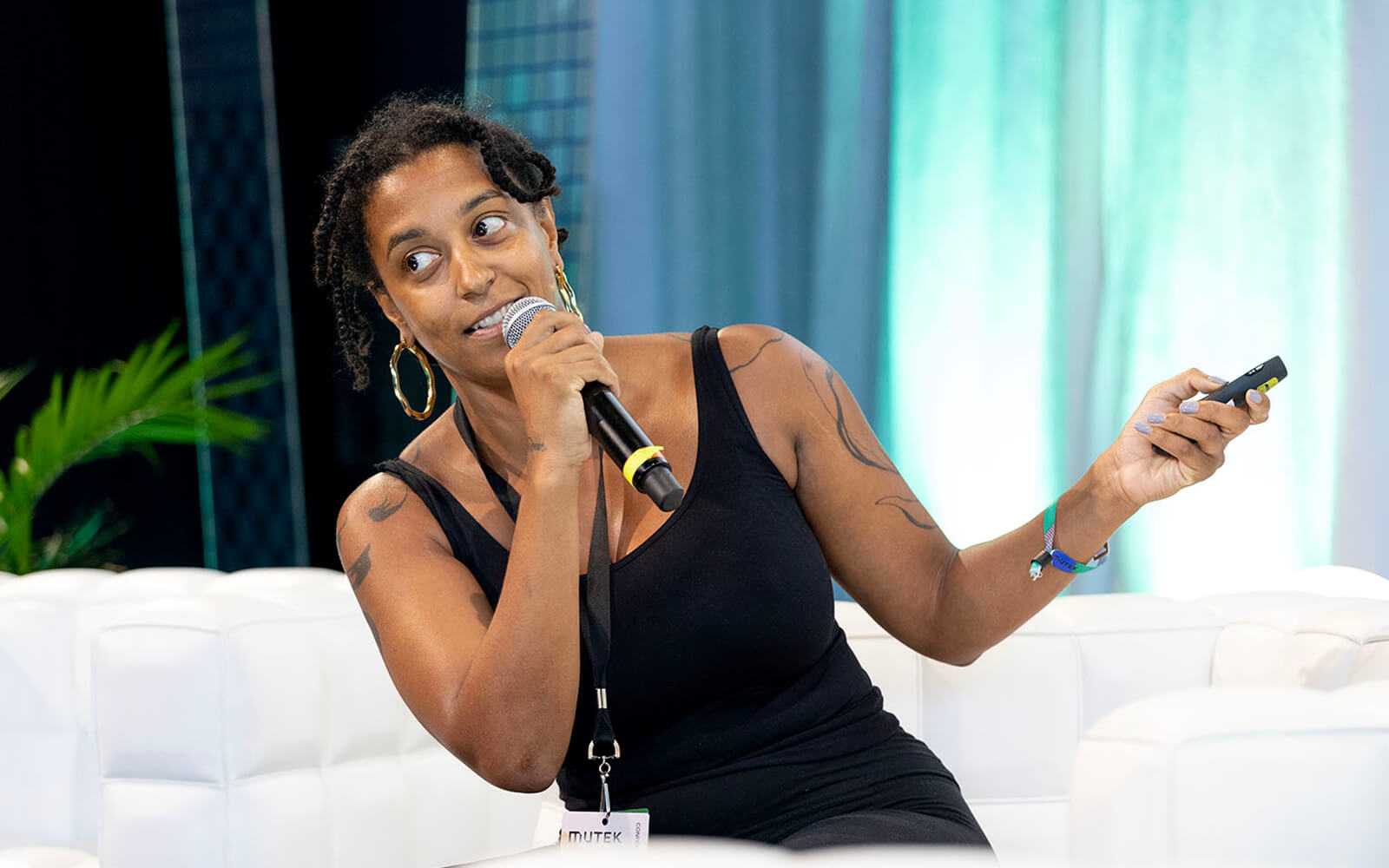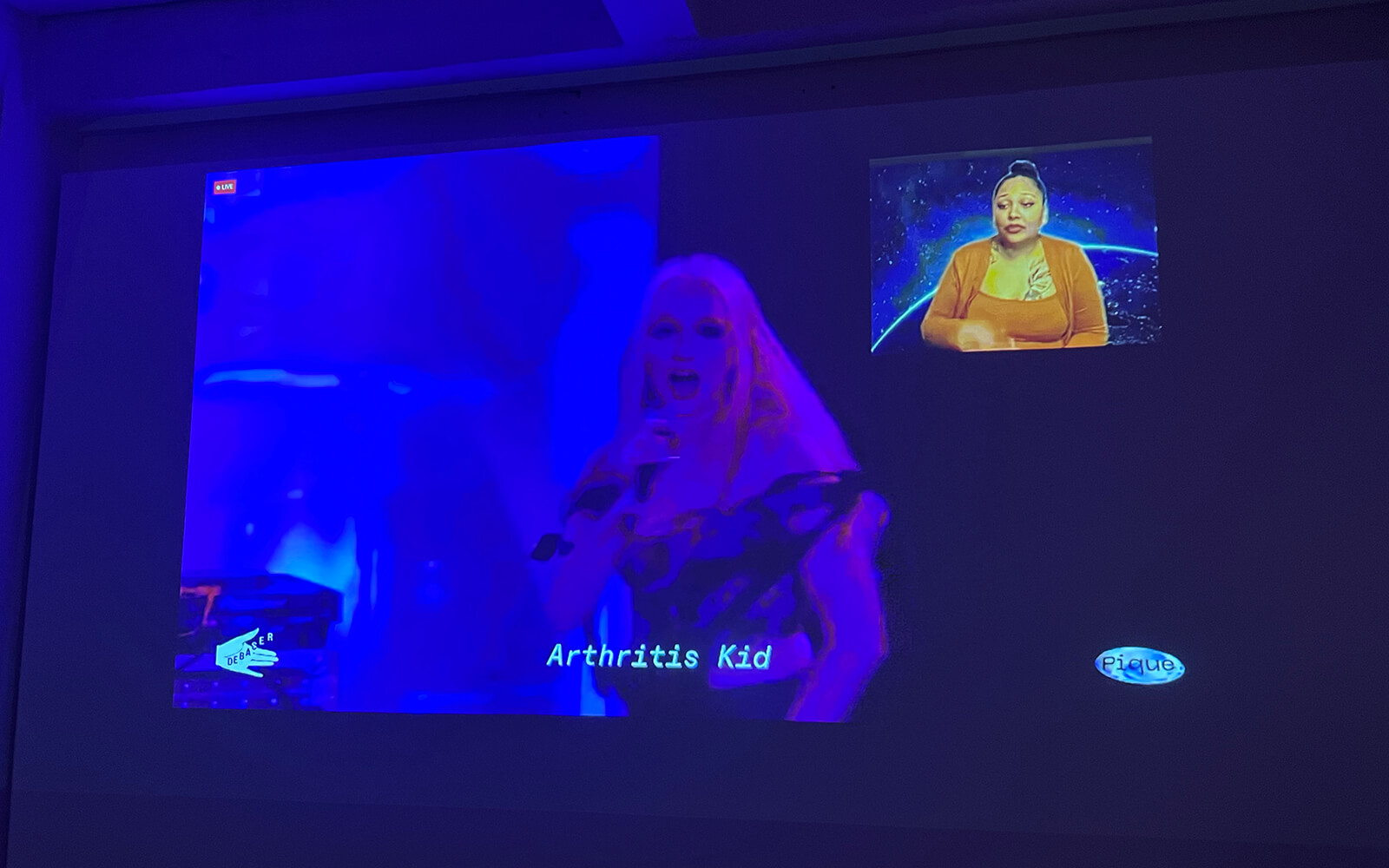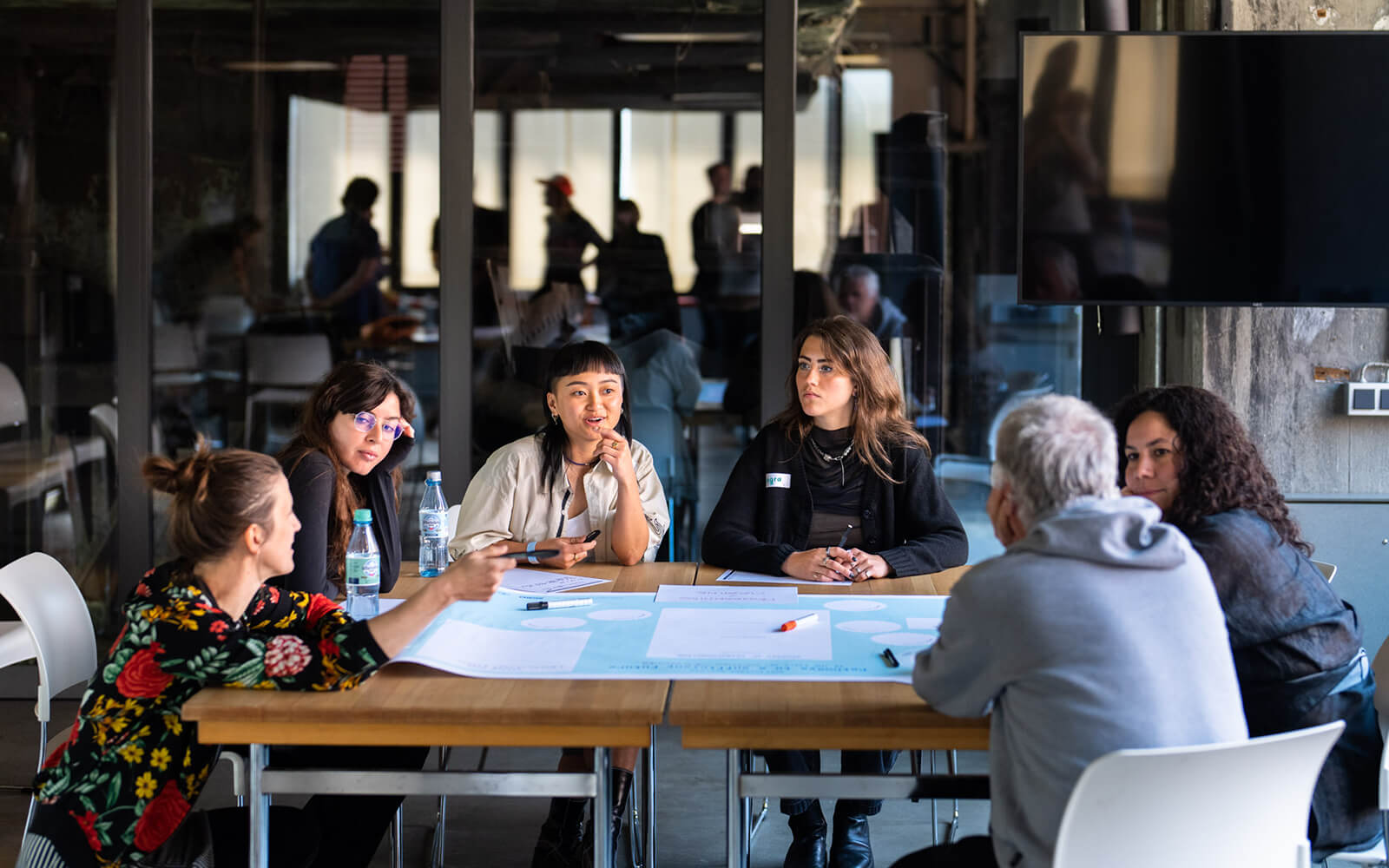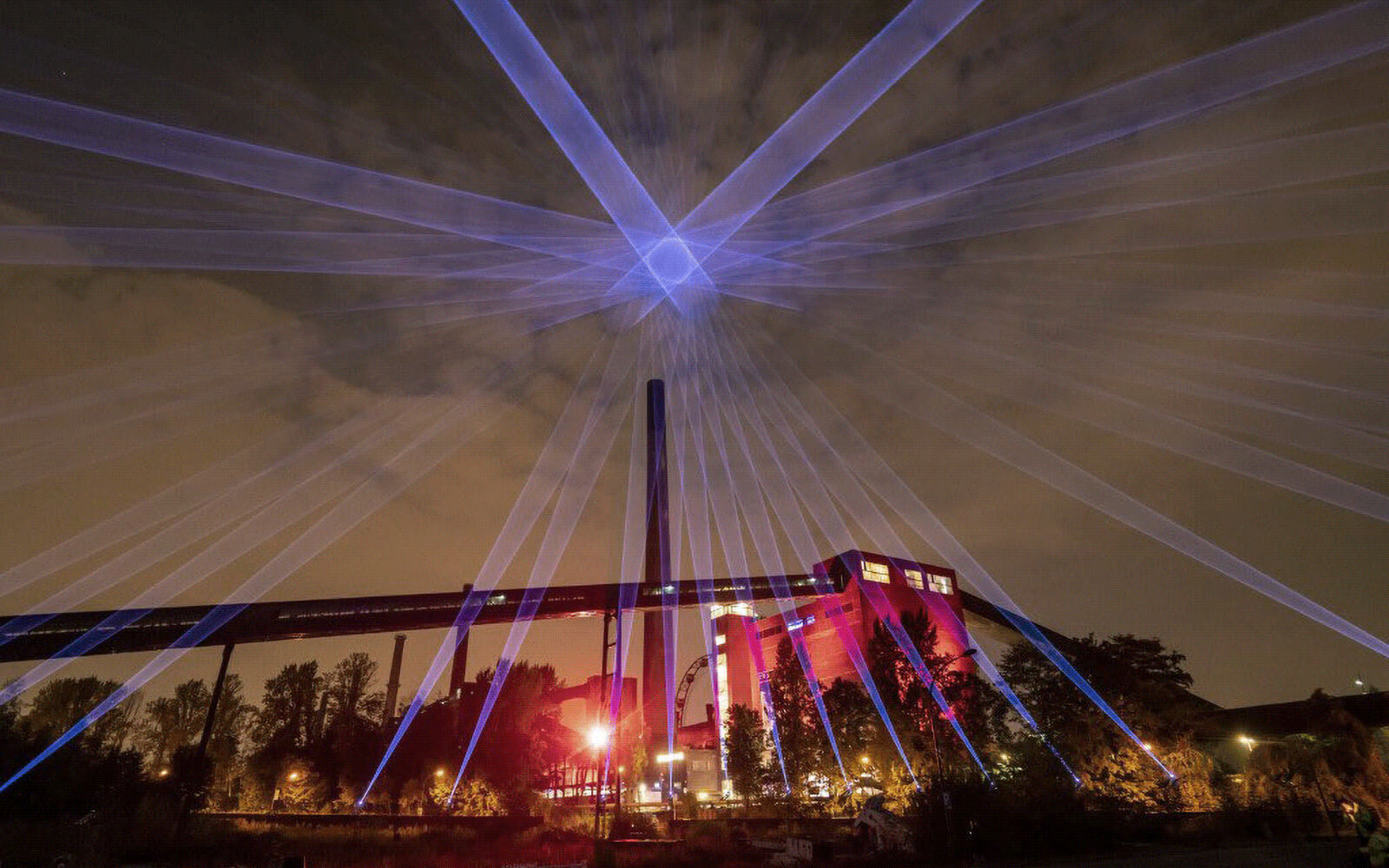Future Festivals Field Guide: MUTEK Rewires for Radical Access and Inclusivity
Rewiring for More Radical
Access and Inclusivity
Access and Inclusivity
When it comes to discussing the future of festivals, there are few cities more appropriate to host that conversation than Montréal. A city that lives and breathes art and performance, Montréal is home to renowned cultural producers; Cirque du Soleil made the circus arts into a billion-dollar industry, Just for Laughs is a fabled testing ground for up-and-coming comedians, and MUTEK is one of the most revered electronic music festivals on the planet. Nowhere is this more evident than Esplanade Tranquille, where for a week each August, Quartier des Spectacles—a public square right in the middle of downtown Montréal—transforms into a packed dancefloor.
Founded in 2000, MUTEK was launched to celebrate the music-technology avant-garde. Unlike any other festival or club night in North America at the time, in scale or ambition, it brought global figures to Quebec and put Canadian electronic musicians onstage beside them. Coil, Monolake, Matmos, and Plastikman graced its early stages, linking acts featured by Europe’s most progressive clubs and esteemed record labels with the sounds bubbling up from the Canadian underground. Notably, MUTEK programmers pushed back against the (then) larger-than-life figure of the DJ and instead centred live electronic music. Laptops running early versions of Ableton Live, vintage synthesizers and drum machines—MUTEK didn’t just bring the studio onstage, it made it the life of the party.
Laptops running early versions of Ableton Live, vintage synthesizers, drum machines—MUTEK didn’t just bring the studio onstage, it made it the life of the party.
MUTEK quickly established itself as an oasis for North American electronic music fans and attracted globetrotting ‘techno tourists’ from Europe, South America, and Asia. Right from the start, it was a place where analog rhythms and digital glitch soundscapes were mirrored by inventive and audacious scenography. Collaborations between musicians and visual artists were so fruitful that A/Visions, a dedicated program for audiovisual experimentation debuted in 2007, cultivating more cinematic and gallery-like contexts for enjoying electronic music. In 2013, the MUTEK team saw the opportunity to showcase more of the experimentation and innovation going on in the digital art and creative industries (and VR quite specifically) that didn’t fit within the existing festival parameters: MUTEK_IMG, a symposium that later became the MUTEK Forum was born. As the festival expanded in scope and reach, spawning global satellite editions in Barcelona, Buenos Aires, Mexico City, Tokyo, and Santiago, the key questions driving MUTEK forward remained the same: What exciting forms can electronic music take? What are the critical aesthetics of emerging technology? And how can the digital arts intersect with broader societal concerns (and wider audiences)?
During the 24th edition of MUTEK’s flagship Montréal edition, these questions were asked around the clock. By night, Tim Hecker blasted haunting soundscapes while enveloped in a cloud of fog, Hatis Noit’s searing vocals melded into uncanny AI imagery, and an all-star cast of dancefloor-focused artists including AUX88, Jennifer Cardini, μ-Ziq kept thousands moving till dawn. By day, MUTEK Forum served up discourse: AI Now Institute’s Sarah Meyers West lobbied for Big Tech regulation and accountability as the only sane response to the explosion of large language models, Winslow Porter shared insights gleaned from a decade of trailblazing immersive VR filmmaking, and Frankie Decaiza Hutchinson opened up about the struggles of running Dweller—New York’s first electronic music festival exclusively focused on supporting and celebrating Black artists. The roster of international artists and thought leaders shared the stage with local talent and industries: represented were Montréal’s burgeoning XR, animation, and videogame producers; students and educators from Concordia University and UQAM; and cultural producers from local galleries and institutions, the DIY scene, and activist communities.
What exciting forms can electronic music take? What are the critical aesthetics of emerging technology? And how can the digital arts intersect with broader societal concerns (and wider audiences)?
Beyond showcasing the bleeding edge of postdigital aesthetics and discourse, MUTEK tasked itself with some extra-difficult homework as the instigator of the Future Festivals project: part of the forum was carved out to discuss where cultural producers were struggling and falling short. The resulting dialogues were bleak at times but also hopeful. MUTEK has long been aware of its role as a cultural leader, but still, despite initiatives to increase access—a pledge to work towards lineups of 50% female-identifying artists, an overhauled accessibility policy produced in consultation with the Crip Rave collective—these conversations underscored just how much work remains to be done.
Focus: Electronic music, audiovisual performance, digital art
Location: Montréal / Tiohtiá:ke / Mooniyang, Quebec, Canada
Launch: 2000
Frequency: Annual (end of August)
Visitors: ~66,500 (in 2023)
Team: 9 permanent staff
Structure: NPO (nonprofit organization)
Funding: Public (national, provincial, municipal)
Satellites: Barcelona, Buenos Aires, Mexico City, Santiago, Tokyo
Formats: 6 days, 24 events in 6 venues; large-scale audiovisual performances, immersive exhibitions, electronic music showcases, conferences, professional activities
Future Festivals Field Guide
Future Festivals Field GuideExplore more of "Future Festivals Field Guide:"
→ HOLO.mg/stream/
→ HOLO.mg/future-festivals-field-guide/
Alexander Scholz
Alex is a Berlin-based writer, artistic director, and cultural worker. As the founder and creative director of HOLO, he helps produce and disseminate knowledge on disciplinary interstices, artistic research, and cultural transformations in the digital age. Over the years, he curated exhibitions, conferences, and educational programmes for organizations and festivals including A.C.C. (KR), Mapping (CH), MUTEK (CA), and NODE Forum for Digital Arts (DE).
Greg J. Smith
A writer and cultural worker based in Hamilton, Canada, Greg is an editor for HOLO and his writing has appeared in publications including Creative Applications Network, Musicworks, and Back Office. He is also a PhD candidate within the Department of Communication Studies and Multimedia at McMaster University, where he is researching the emergence of the programmable drum machine in the early 1980s.
